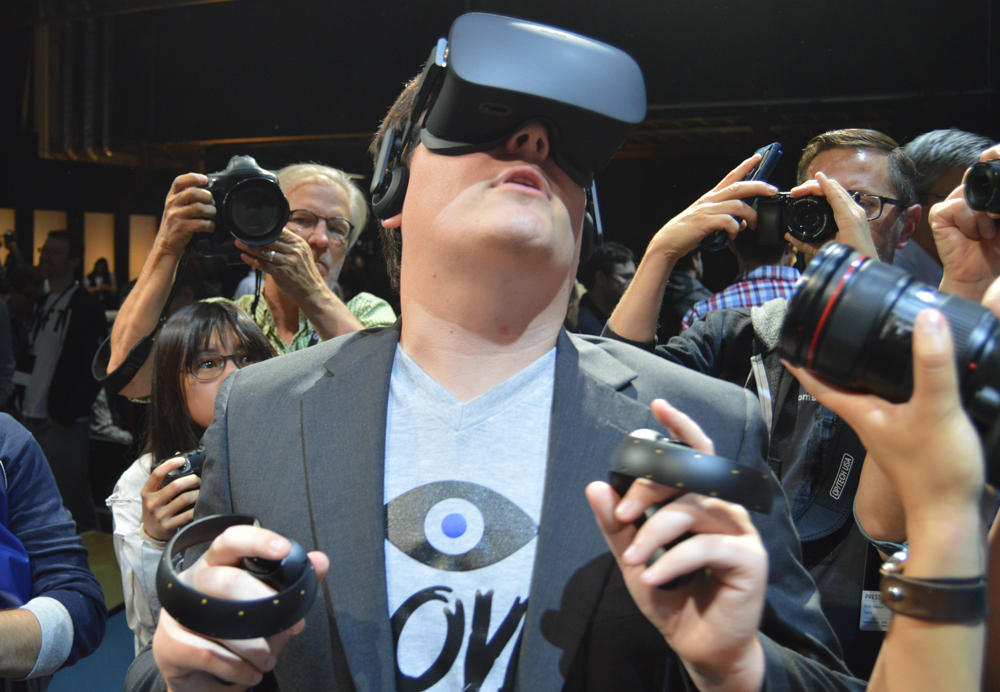Publicly, Oculus co-founder Palmer Luckey has been missing in action since the revelation that he supported a political propaganda campaign back in September 2016. This week, however, he’s unavoidably stepped back into the spotlight as he answered questions in the ongoing Oculus-ZeniMax legal battle.
Yesterday was an eventful day for the case, with Facebook CEO Mark Zuckerberg answering questions to defend his VR subsidiary against allegations that it had stolen ZeniMax technology in the creation of the Rift. Luckey, 24, followed late in the day and plays a crucial part in the trial given his work with John Carmack, the Oculus CTO accused of stealing tech from ZeniMax when he worked at subsidiary id Software.
Luckey was wearing a blue suit and red tie in the court room, a rare sight for the engineer, who usually sports a Hawaiian shirt, shorts, and flip flops. His work with Carmack was the basis for much of the questioning, though his time started out talking about Facebook’s $2 billion acquisition of Oculus in 2014, which he said he possibly stands to make $100’s of millions from in the years ahead. Luckey estimated to have made $50 million working with the company thus far.
Turning the conversation to Carmack, Luckey recited his version of history that will be familiar to those that have studied the story as it has been told so far. He said he sent the developer a headset in 2012. That headset became central to the discussion. In terms of what Carmack actually contributed to the Rift, Luckey was asked if the developer had created the Rift’s fisheye distortion system used to create a panoramic image that seems to wrap around the user inside the headset.
“I guess what he did is ‘a’ solution rather than ‘the’ solution,” he said.
Carmack, at the time still working at Doom developer id, showed off an early prototype of what would become the Rift at E3 in 2012. The rough prototype was showing id’s Doom 3: BFG Edition running in VR. Luckey noted that he wasn’t at the event himself, but said a demo would not have been possible without Carmack’s software. Asked if this was a breakthrough moment for the company, he replied: “I guess you could call it a breakthrough moment in awareness.”
It’s worth noting that ZeniMax’s complaint filed against Oculus last year questions Luckey’s claims. The document alleges that, at CES 2013, Oculus “disseminated to the press the false and fanciful story that Luckey was the brilliant inventor of VR technology who had developed that technology in his parents’ garage.” ZeniMax alleges this story is “utterly and completely false”, and that Luckey lacked “training, expertise, resources, or know-how to create commercially viable VR technology.” Later, it states that Luckey made “no substantial contribution” to the creation of the Rift.
Finally, Luckey said he took NDAs “very seriously”. Luckey himself is facing legal action after an alleged breach of contract with another company, Total Recall. While his role at Oculus currently isn’t clear, the company has said that it will reveal his position soon.
Former Oculus CEO Brendan Iribe is still expected to take the stand at the case this week.



























